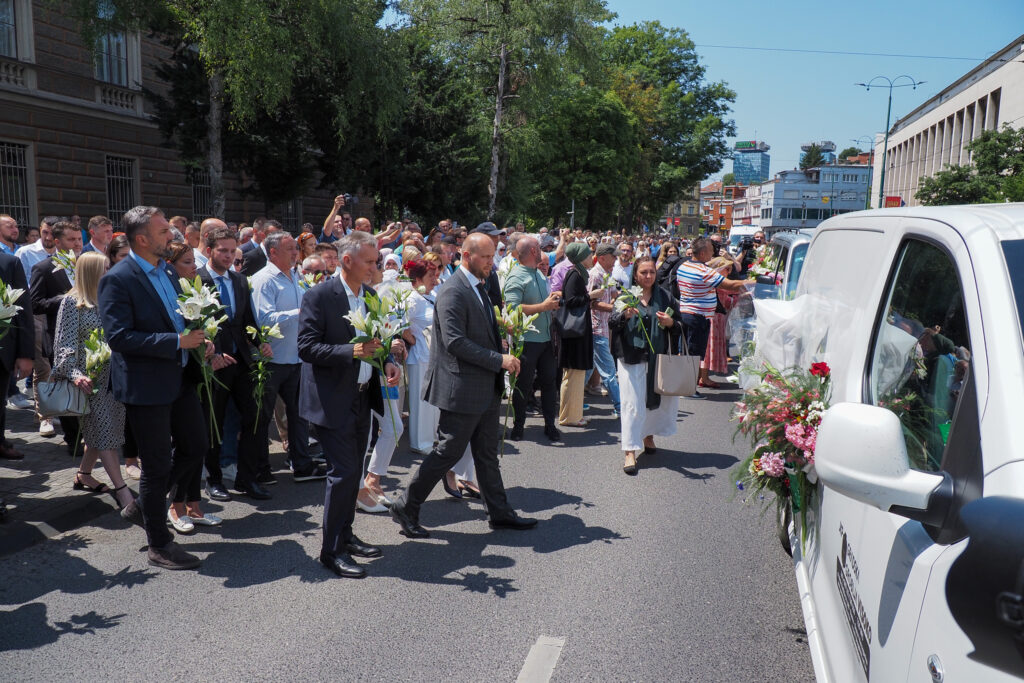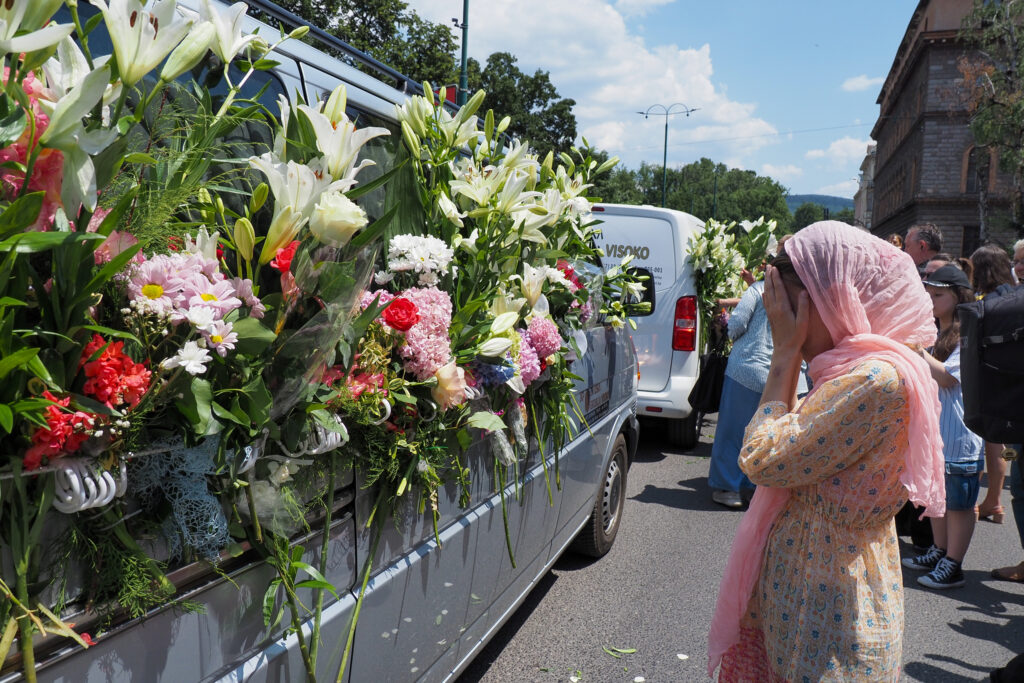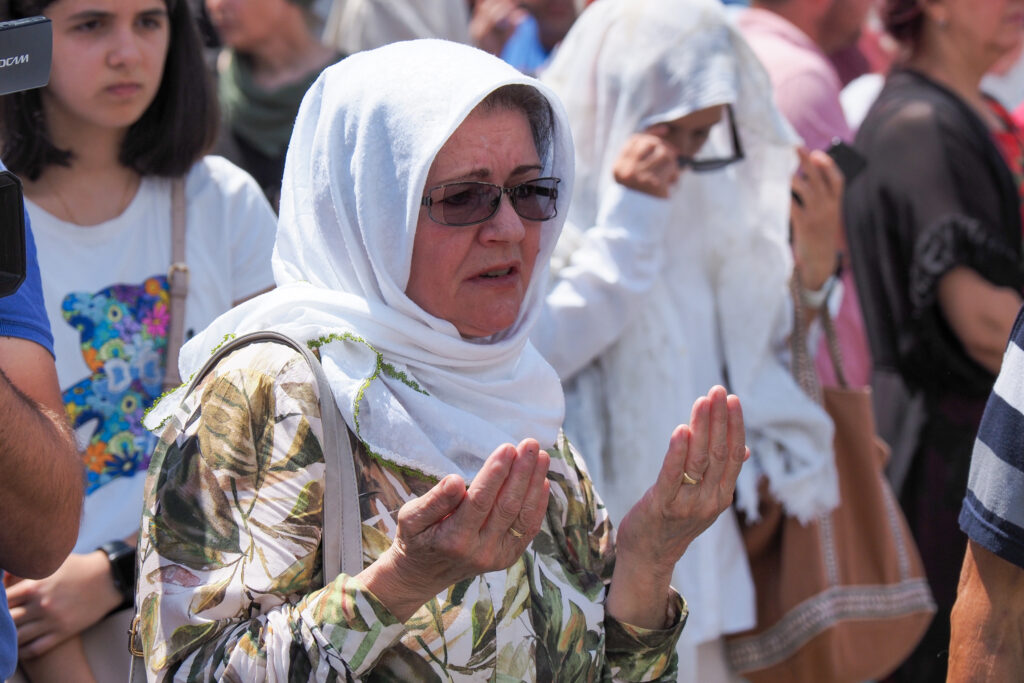
Authorities in Bosnia and Herzegovina have sent the remains of 14 more Srebrenica genocide victims to Potocari village, before their burial tomorrow on the 29th anniversary of the 1995 genocide.
Every year on July 11, newly identified victims of the genocide are buried in a memorial cemetery in Potocari, located in the country’s east.
After passing through Vogosca, a Sarajevo suburb, minivans carrying coffins draped with Bosnia and Herzegovina flags stopped in front of the presidency near a memorial for children killed in the Bosnian War between 1992 and 1995.
Emotional scenes were witnessed as the coffins passed through the streets, with large crowds of people, including women and children, crying and praying for the victims.

The youngest victim to be buried this year is Beriz Mujic, 17, born in 1978 in Zvornik.
His remains were found 28 years after his killing and exhumed in May 2023.
He was killed in July 1995 in the Suceska area near Bratunac, and his remains were discovered and exhumed in the Srebrenica municipality area.
Subscribe to our newsletter and stay updated on the latest news and updates from around the Muslim world!
Mujic will be buried next to his brother Hazim, whose remains were laid to rest in 2013.
The body of their father, Omer Mujic, has yet to be found.
The oldest victim who will be buried on Thursday is Hamed Salic, born in 1927. He was 68 years old when he went missing in the summer of 1995 in the town of Zepa. His remains were exhumed in May 2014 and recently identified.
Around 1,500 children were massacred during the brutal 1995 siege of Sarajevo by Bosnian Serb forces.
Thousands of people from various countries will attend the funerals and burials. Following this year’s funeral, the cemetery’s total number of burials will reach 6,765.
The UN Security Council declared Srebrenica a “safe area” in the spring of 1993. However, Serb troops led by Gen. Ratko Mladic — who was later found guilty of war crimes, crimes against humanity and genocide — overran the UN zone.
Dutch troops responsible for protecting people in the UN zone failed to act when Serb forces occupied it on July 11, killing 2,000 men and boys in a single day.
About 15,000 Bosniaks fled to the surrounding mountains, but Serb troops hunted them down and killed 6,000 more people.
Serbs who allowed women and children to reach the region controlled by Bosnian soldiers massacred at least 8,372 Bosnian men in forest areas, factories and warehouses. The murdered Bosnians were buried in mass graves.
The bodies of genocide victims were discovered in 570 different locations across the country, 77 of which were mass graves.
In 2007, the International Court of Justice in The Hague ruled that genocide was committed in Srebrenica.






















